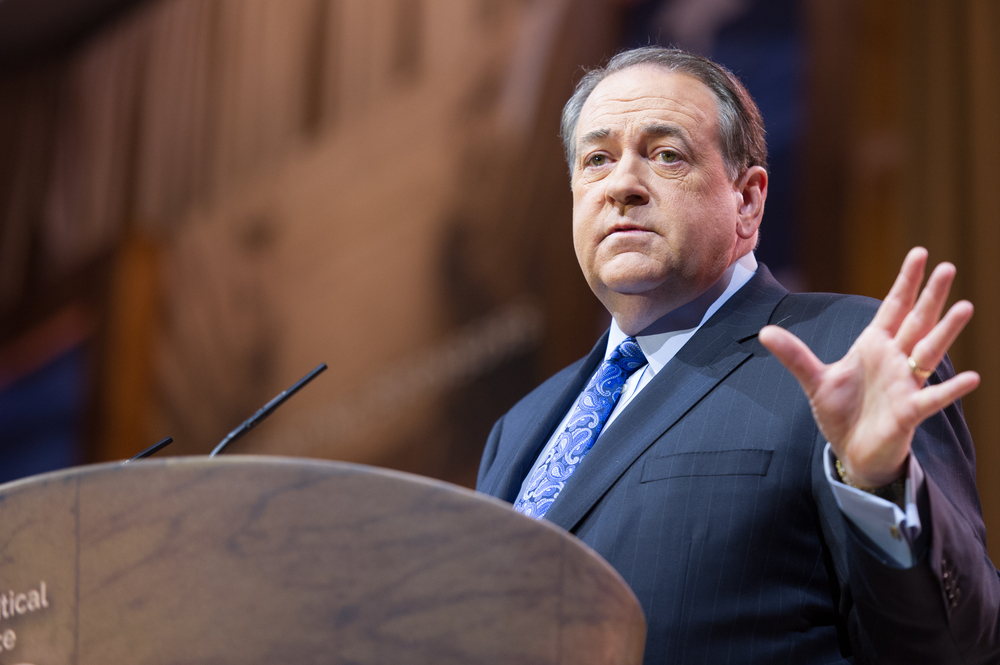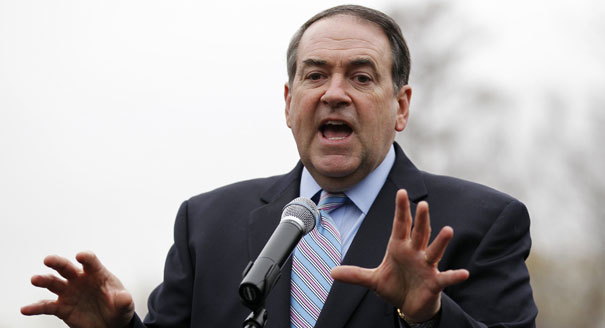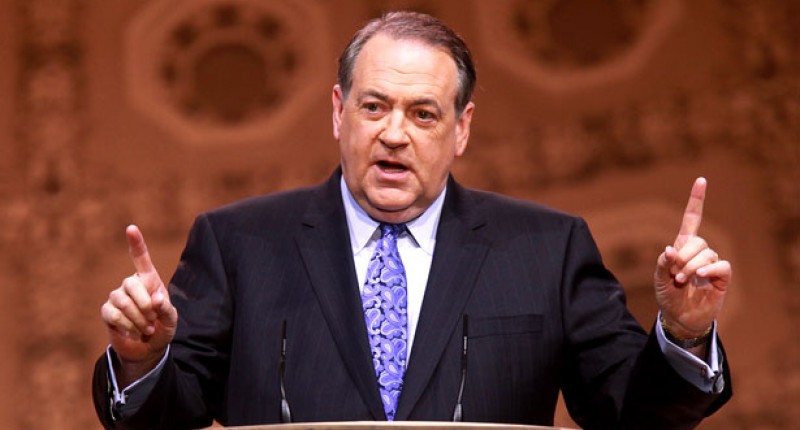There is a truly exceptional review of Mike Huckabee’s latest book up on Religion Dispatches that argues that the driving forces behind Huckabee, his campaign, and his new book tour are resentment and bitterness. I have to say that I completely agree with that assessment … probably because I happen to be the one who wrote it:
Billed as an inside look at “the movement that’s bringing common sense back to America,” the book is part campaign memoir, part policy statement, and partly a challenge to all Americans to stop being so fat, lazy, and mean. But mostly it is a means for Huckabee to settle scores with all those who failed to support his candidacy, see its genius and, consequently, to save America from itself.
From the very beginning, Huckabee makes no effort to conceal his disdain for his presidential rivals and seemingly goes out of his way to invoke Mitt Romney wherever he can, mentioning the former Massachusetts Governor by name more than sixty times in the first one hundred pages. While Huckabee doesn’t have anything particularly nice to say about Fred Thompson, Rudy Giuliani, or John McCain—the others barely rate a mention—it is Romney who personifies everything that is wrong with the Republican Party.
It’s clear that Huckabee resents Romney’s wealth and the millions of dollars he pumped into his own campaign. Huckabee and his staff, who were often just scraping by, at one point blasted Romney for attempting “a leveraged buyout of the Republican presidential nomination,” calling him one of those “political wannabes with self-inflicted funding [who] let themselves be sculpted and focus-grouped into what a high-priced pollster thinks is a winning package.” Time and again he mocks the former Massachusetts Governor for spending millions, yet failing to win half the votes that Huckabee and his rag-tag campaign racked up, dismissing Romney’s entire campaign as a fraud perpetuated solely by the fact that his “net worth bought him instant status … [as] a serious contender.”
While Huckabee nurtures a deep personal dislike of Romney, what he truly despises is everything Romney represents: the rich, East Coast, insider elites who dominate the Republican Party. Huckabee, the son of a fireman who struggled to make ends meet, effectively wages class warfare against the party insiders and libertarian “faux-cons” in Washington; he lashes out at the likes of The National Review and the Club for Growth, whom he calls “the silk-stocking crowd,” for looking down their noses at the blue collar “values voters” that Huckabee claims to represent. Two chapters are devoted to holding himself up as the representative of those who shop at Wal-Mart and not Neiman Marcus; of those who eat at The Waffle House rather than Ruth’s Chris Steak House; of those who watch “Touched By an Angel” and not “Desperate Housewives.” He expends several pages rehashing old campaign attacks on his record from the Club for Growth and several more pages striking back at The National Review for their opposition to talk that John McCain might pick him as his running mate. But even here Romney remains representative of everything that “was wrong with our party.”
But you don’t have to take my word for it. Here’s Huckabee displaying that bitterness during a book tour stop in Iowa earlier in the week:
Appearing on Christian conservative Steve Deace’s drive-time program, Huckabee said though he was criticized by “establishment Republicans” during his unsuccessful bid for the GOP presidential nomination, he has been proven right time and again.
“When I said the economy was beginning to sputter, I was absolutely pilloried by the Wall Street Journal and the National Review and all the other snobbish folks who thought that I was just a dumb hick from Arkansas who didn’t have a clue,” he said.
…
Huckabee’s book has gotten a lot of attention, mainly due to the portions that discuss his fellow Republicans. He was particularly hard on Gary Bauer, the conservative Christian leader and former presidential candidate, whom he described in the book as having an “ever-changing reason to deny me his support.” He also accuses Bauer of putting national security before social issues like the sanctity of life and traditional marriage.
Deace seemed to share his opinion of Bauer.
“The phrase ‘Better for one man to die than the whole nation to perish’ comes to mind,” Deace said.
Huckabee said he couldn’t pull any punches with the book because if he did he would lose credibility with his supporters.
“I want people to know the truth. I got a reputation during the campaign as someone who was plain spoken, who didn’t try to sugar coat or frost things over,” he said. “I would have lost credibility if I had written this book and not told some of the things that I try to at least bring forth.”
But the passages that discuss his fellow Republicans are just a small portion of the book, and the attention they are getting is disappointing, he said.
“Shouldn’t be surprised that people would take a few passages out of a 240-page book and act like that’s all that’s there,” Huckabee said. “This book lays out not just what’s happened and why we’ve had the problems we’ve had in the conservative movement, but it also lays out how we get our groove back.”
I take issue with Huckabee’s repeated assertion that his attacks on Romney and various GOP-insiders constitute just a “few passages” in his book because, in fact, they make up the bulk of the first 130+ pages.
Huck may like to pretend that the purpose of the book was to help resurrect the conservative movement, but the fact is that it was written to settle scores and position himself for a future run at president. As such, his relentless trashing of the very Republican institutions from whom he will need support the next time around is inevitably going to grab the bulk of the media’s attention. If he wanted the press to pay attention to his “Fair Tax” proposals or dedicated to bad-mouthing Mitt Romney and the Religious Right.







